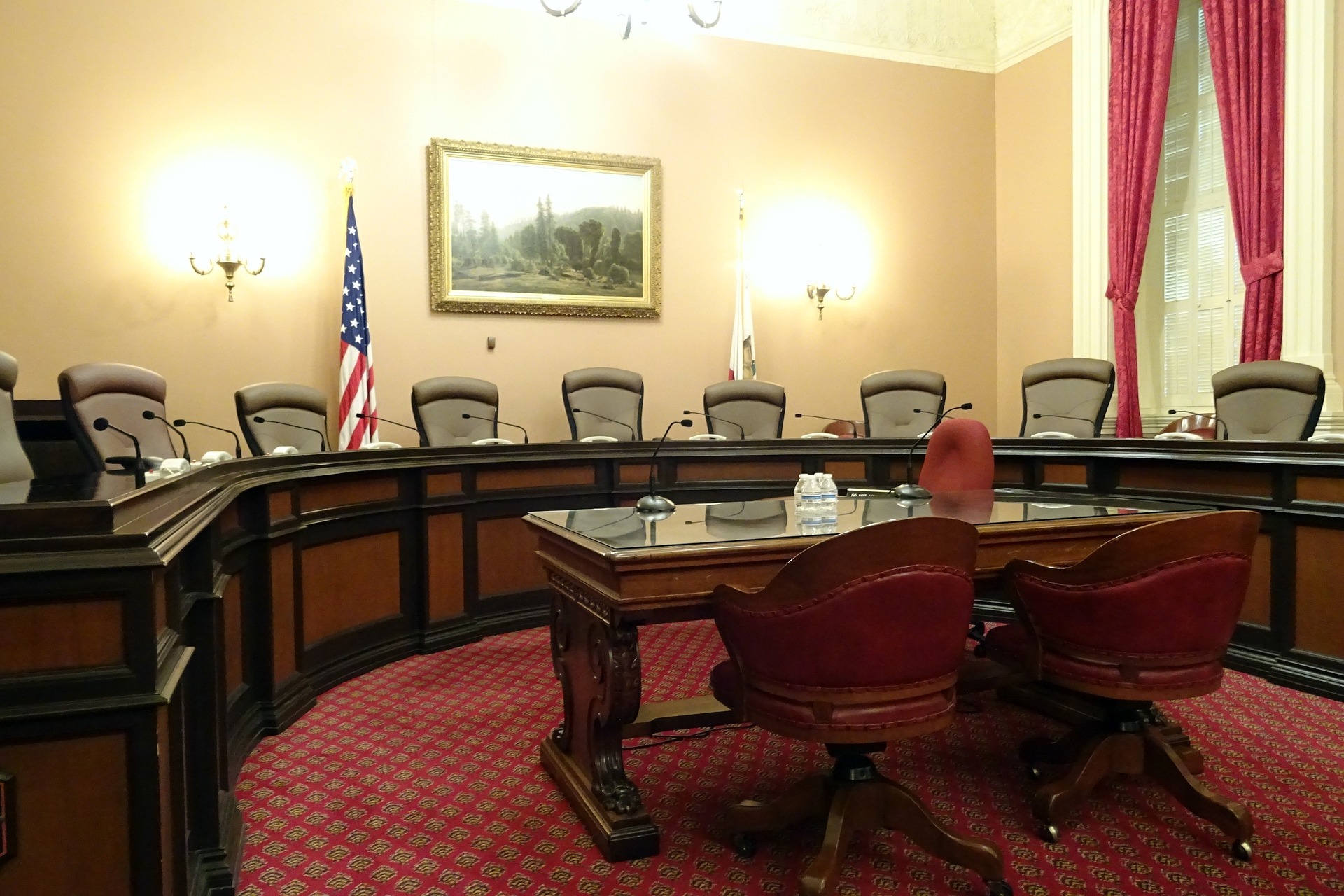One Taboo Clause In Conventions Run Under Robert’s Rules>
When it comes to the order of business, conventions are typically mundane. State Party, District, or County conventions are required by law to be run using Robert’s Rules of Order.
Consequently, many conventions look exactly the same. Moreover, some conventions repeat the same agenda for over 20 years.
The requirement to use Robert’s Rules brings an inconvenience to Chairs who would rather just follow the script used by the previous Chair for several years in a row.
Two Questions about New Business
The biggest question related to the scripts relying on Robert’s Rules is the omission from the agenda of a clause titled “New Business”. This section is the essence of the meeting, yet it is almost never included in the discussion.
From the omission of the New Business clause, two questions arise.
First, why do convention scripts historically omit this section from the agenda?
Second, why do most parliamentarians refuse to add the clause, and ask that the provided agenda be adopted the way it is presented by the Chair, without the New Business section?

Let us contemplate the answer to the first question. Presumably, a gifted procedural parliamentarian excluded new business in order to control the assembly. Let’s review the order of the conventional agenda of the assembly members, as follows,
- Call to order on a specific date/time
- Prayer
- Pledge of allegiance
- Temporary chair/ Chair introduction
- Reports of officers, elected officials, committees
- Unfinished business or a special order
- Business required by the law. For example, election of specific positions by assembly body
- ...
- Call to adjourn
The agenda above is tedious and unhurried. Ordinarily, it does not provoke suspicion and thus may fool people. In case the Chair controls the slight majority, this order of business guarantees a clam convention.
The answer to the second question turns out to be more complicated. When it comes to the status quo, there are only two sides of the coin that have the ability to change it: the Chair and the opposition to the Chair.
Frequently, neither side has been native to Robert’s Rules. The new Chair, occasionally, may know it and stay away from the agenda due to the reasons mentioned above. For one or two generations, the chairs have utilized the Robert’s Rules type of agenda, sans the “New Business” item.
As a result, hundreds of attempts to pass something original on the floor remained unsuccessful.

Adding New Business to the Agenda
Approaching the committee or the Chair responsible for the assembly preparation and asking them to include a new point in the agenda will result in a better method. It is crucial that the New Business be incorporated in the agenda for a straightforward reason.
The Chair and the committee in charge of assembly preparation have outdated or limited knowledge of the situation in the geographical areas represented by assembly delegates. For instance, a District Caucus Delegate may represent anywhere between 100,000 to over a million individuals in one district, while the Chair theoretically does not have a way of knowing about the presence of all important matters, “New Business”, in a particular district.
Customarily, neither chairs nor parliamentarians favor the change and will try to hold back the discussion saying something like, “Let’s pass the agenda first and then later we can amend it.” The “later” in that suggestion will not happen for two reasons.
Firstly, the promise of the amendment will be lost amongst other topics. Secondly, the amendment of the agenda is very difficult, requiring a 2/3 majority. Essentially, if the Chair opposition has 2/3 majority, they could technically not only overwrite the agenda, but also pass any agenda they desire in the first place.
On the other hand, provided the chair agrees to include the new business, it is better to place it right after the discussion of unfinished business and before any election for the positions. As an example,
- Call to order on a specific date/time
- Prayer
- Pledge of allegiance
- Temporary chair/ Chair introduction
- Reports of officers, elected officials, committees
- Unfinished business or a special order
- New Business
- Business required by the law. For example, election of specific positions by assembly body
- …
- Call to adjourn

Potential Problems
Generally speaking, there is another way of introducing the new business into the assembly. This approach depends on the Chair or the Temporary Chair in case the Chair in not yet elected.
Before any agenda is voted, the Chair or the Temporary Chair has an opportunity to ask the floor directly if there is “any new business” to be included in the agenda. The address from the Chair will give a signal to the Delegates on the floor to state their points and trigger a set of reactions from the assembly Delegates.
Even though this method is extremely effective, it is in fact very unreliable. The Chair may never ask the question and the new business may never have a chance to be brought to the floor. Some assemblies and city councils hold the discussions and unofficial vote preference in secret, a day before the official session. Typically, Chairs desire clean and undisturbed conventions, conducted using a 25-year-old script.
Disrupting the smooth convention by trying to introduce the new business may result in the Chair’s anger, inability to rule, embarrassment, or disqualifications. Most chairs are not aware of the Robert’s Rules of Order and do not easily accept changes.
All things considered, regardless of what side of the coin you are on during the assembly meeting under Robert’s Rules, remember that the sides may switch and one day or another you may receive the same treatment as the other side.
Moreover, for those who challenge the status quo, remember this taboo clause and apply it when necessary.